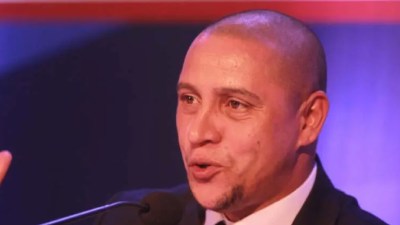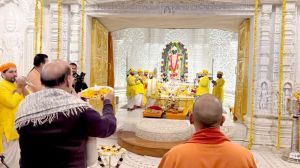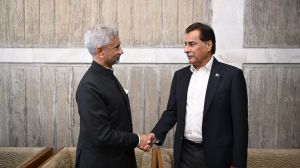When peace threatens
In the bloody and violent ethnic politics of Sri Lanka, the LTTE has consistently demonstrated its political bankruptcy and its fear of d...

In the bloody and violent ethnic politics of Sri Lanka, the LTTE has consistently demonstrated its political bankruptcy and its fear of democracy and peace. The survival of the LTTE, and more specifically of its fascist leader, V. Prabhakaran, depend on keeping alive ethnic hatred, in ensuring that all who work for a peacefully negotiated settlement are eliminated.
Neelan Thiruchelvam, killed yesterday by the LTTE, was a man who had dedicated himself to peace in Sri Lanka. In a country where the gulf between the two main ethnic groups, the majority Sinhalese and the minority Tamils, often seems unbridgeable, Neelan embodied the middle-ground, a Jaffna Tamil, yet a true Sri Lankan.
In no way was this more evident than in the relentless vilification campaign against him by chauvinists on both sides of the ethnic divide, each accusing him of pandering to the other. But it was Neelan8217;s unshakeable belief that a constructive future for the two communities could be built only within the framework of a unitedSri Lanka, governed by a non-unitary constitution that genuinely reflected the country.
In the last four years of his life, he was directly involved, along with President Chandrika Kumaratunga and Professor G.L. Peiris, the minister for constitutional affairs, in developing a new political framework for Sri Lanka that would address the aspirations of the minority Tamil community in a way that no previous constitution of Sri Lanka had done.
The quot;political packagequot; of proposals that Kumaratunga placed before the nation in 1995 bore the signature of Neelan in many ways 8212; as a Tamil, as a constitutional expert, as an intellectual, as a believer in consensual politics and in human rights.
Neelan believed that if there was one leader who could deliver Sri Lanka out of its mess, it was Kumaratunga and the liberal, progressive air she brought to the politics of this blighted island. He was more than a little disillusioned that Kumaratunga had frittered away the political advantage she had in the early yearsafter her 1994 election by not acting on the quot;packagequot; fast enough. quot;Something as radical as that has to be done within the first few months, when the people are still with you,quot; he said once.
Despite the disappointment, he believed that the proposed new constitution was Sri Lanka8217;s best chance to heal the long years of conflict. Born on January 31, 1944 in a distinguished political family 8212; his father was a minister in the Dudley Senanayake government in the 8217;60s 8212; he studied law in Sri Lanka and at Harvard. Sharp, unflappable, articulate, civilised and always pleasant, he brought to Sri Lankan politics the cerebral input that it badly required. Though of the Tamil United Liberation Front, he was much more than just another member of parliament of a political party.
Besides being a Tamil and Sri Lankan, Neelan was also a South Asian, with a keen interest in developments across the subcontinent. He wanted other Sri Lankans to get rid of their insularity and look outward; for this he would regularlyorganise public lectures by scholars from abroad, especially India and Pakistan, on issues of current interest in the subcontinent.
The International Centre for Ethnic Studies in Colombo, partly his brainchild, is a meeting ground for international academics. All researchers on Sri Lanka, anywhere in the world, have had contact with him in one way or another and benefitted immensely from the interaction. Neelan was a compulsory stop-over for every foreign journalist with whom he always found the time to share his insight as well as his family8217;s hospitality.
If there remained any doubt in anyone8217;s minds on this score, in killing Neelan, the LTTE has reiterated that it is not the interests of the Tamil people that is uppermost for it, as its quot;leaderquot; routinely claims, but its own survival. Sri Lanka, and all those who came into contact with Neelan, however fleetingly, will miss him and find it difficult to fill the vacuum that his tragic and senseless killing has created.
- 01
- 02
- 03
- 04
- 05































